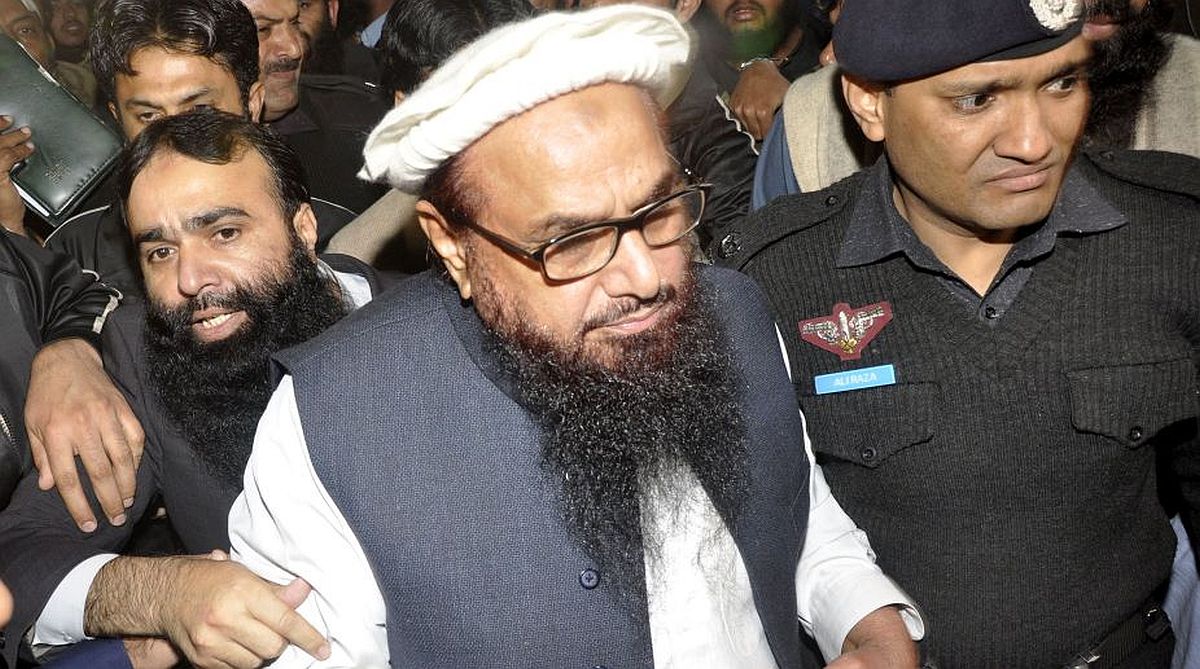On account of rising diplomatic pressure from India and amid intense global pressure to rein in the terror groups following the Pulwama terror attack in Jammu and Kashmir, Pakistan on Thursday banned 2008 Mumbai terror attack mastermind Hafiz Saeed’s terror outfit Jamaat-ud-Dawa (JuD) and its front Falah-e-Insaniat Foundation (FIF).
Pakistan’s scrambling to put together things is seen as evidence of a coordinated diplomatic campaign that India has undertaken, sources said.
Advertisement
A spokesman of Pakistan’s Interior Ministry said that the decision to ban these groups was taken during a meeting of the country’s National Security Committee or NSC chaired by their Prime Minister Imran Khan at his office on Thursday.
“It was decided during the meeting to accelerate action against proscribed organisations,” the spokesperson said in a statement.
“It was further decided that Jamaat-ud-Dawa and Falah-e-Insaniat Foundation be notified as proscribed organizations by the Ministry of Interior,” he added.
However, it remains to be seen how effective the latest ban would be on the two terror groups, which have the tacit backing of Pakistan’s political leaders and the security agencies.
Earlier, the two terror outfits were kept on the watch-list of Pakistan’s Interior Ministry.
The JuD is the front organisation for the Lashkar-e-Taiba or LeT, which is responsible for carrying out the Mumbai terror attack that killed 166 people. It has been declared as a foreign terrorist organisation by the US in June 2014.
The US Department of the Treasury has designated Hafiz Saeed as a Specially Designated Global Terrorist, and the United States, since 2012, has offered a USD 10 million reward for information that brings Hafiz Saeed to justice.
Hafiz Saeed was listed under UN Security Council Resolution 1267 in December 2008. He was released from house arrest in Pakistan in November 2017.
Many countries have unequivocally condemned the Pulwama attack in which at least 44 CRPF personnel were killed, with a number of them directly calling for JeM to be held accountable.
Pakistan-based Jaish-e-Mohammad had claimed the responsibility of the Pulwama suicide attack.
US President Donald Trump has repeatedly called out Pakistan of providing “safe haven” to terrorists and asked Islamabad to rein in the terror groups operating from its soil. Iran and Afghanistan also accuse Pakistan of providing support to terror groups to carry out attacks in the neighbouring countries.
Last week, Iran asked Pakistan to crack down on terrorists who killed 27 of its Revolutionary Guards in an attack near the border or expect military action by Tehran “to punish the terrorists”.
The NSC meeting also reviewed the National Action Plan against terrorism in detail. Services chiefs and key ministers were in attendance.
Pakistan Prime Minister Imran Khan had on Thursday, while disclaiming responsibility, offered to punish anyone who was found using its territory. He also mentioned about accelerating measures to root out terrorism and extreme.
“We need to move to ensure that militancy and extremism are rooted from the society and the State never becomes hostage to extremists,” Khan said as he directed both the interior ministry and the security institutions to immediately accelerate actions on the ground.
After the Pulwama attack, New Delhi reached out to the international community, most of which condemned the terror strike, to isolate Pakistan and to highlight the role of the neighbouring country in using terrorism as an instrument of state policy.











